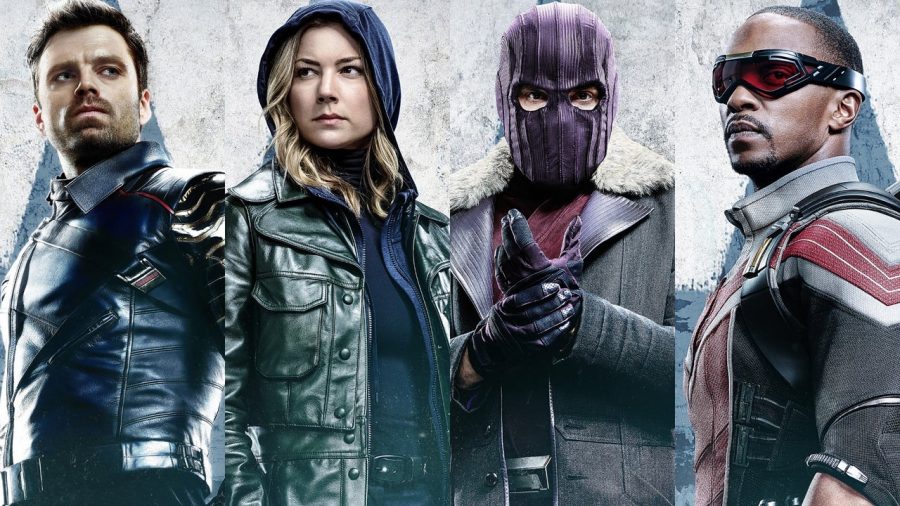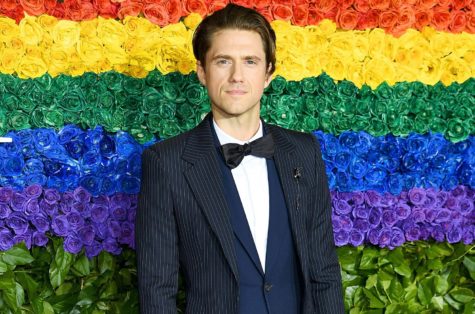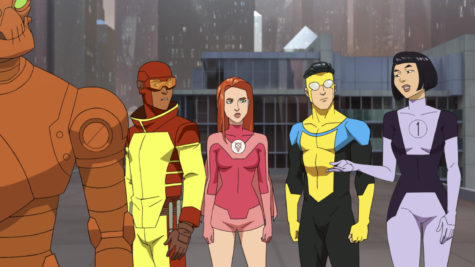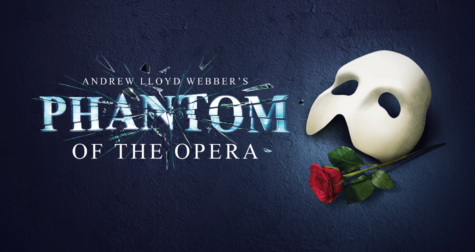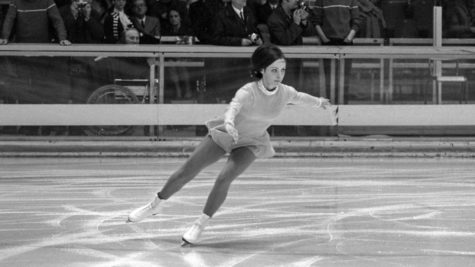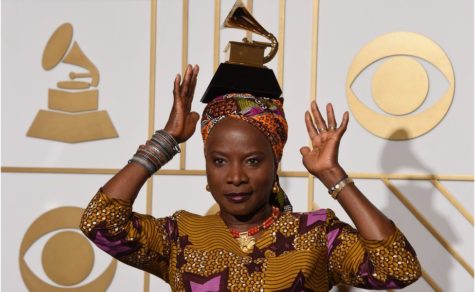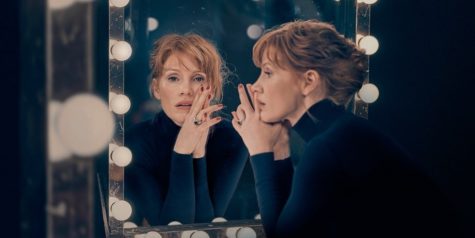“Falcon and the Winter Solider” exceeds expectations
April 14, 2021
*** This article may contain spoilers for “Falcon and the Winter Soldier” ***
After the conclusion of Phase 3 of the Marvel Cinematic Universe, many fans worried that Marvel had backed itself into a corner, after killing off numerous crucial characters.
With the release of the incredibly popular “WandaVision,” fans were given a better idea of what to expect from Phase 4 productions.
The obsession with the sitcom based saga has now transferred to “Falcon and the Winter Soldier.”
Through its weekly installments, Marvel is proving to its viewers that every hero has an interesting and important story to tell, not just the “Original 6.”
In episode three, Sam and Bucky find themselves teaming up with Baron Zemo, a former adversary, much to Sam’s dismay.
As the trio works to find the super-soldier serum, it is unclear throughout if Zemo has ulterior motives or not.
While undercover, the Baron manipulates Bucky’s abilities as the Winter Soldier, leaving him absolutely shell-shocked after re-entering his violent persona.
This begs the question: has Bucky’s coding really been eradicated, or does he still have the potential to be fully controlled? This could lead to some serious complications in the future if the latter is proven to be true.
A scene in episode four seemingly confirms that Bucky’s coding has successfully been erased, but this certainly would not be Marvel’s first misdirect.
Also in episode three is the reappearance of Sharon Carter.
Her appearance evoked a collective groan from much of the fanbase due to her character being used in the past as a romantic interest for both Bucky and Steve Rogers.
However, it’s important to allow Carter to be her own character and see what she can offer to action rather than romance.
Her final moments in the episode suggest that she has something going on behind the scenes that the titular duo isn’t privy to.
Episode four seems to reinforce Carter’s desire to help, but her role to this point has certainly only scratched the surface.
There are two ways that Marvel can handle her storyline: she can continue to be used for her femininity or she can be a real ally.
As aforementioned, Sharon has only been necessary to this point for what she can add to male heroes’ stories. Carter has so much potential to be a powerful female presence in this show and in the Marvel Universe as a whole. It would be great to see some character development focused on what she can do for herself rather than what she provides for others.
Everybody’s undoubtedly least favorite character of the series is the new Captain America, John Walker.
Though Walker has had very little screen time to this point, fans have strongly disliked him due to his replacing Rogers in the iconic role.
Personal vendettas aside, it’s difficult to determine through episode three whether or not Walker’s intentions are pure.
Is he truly trying to help Sam and Bucky, or is he part of something bigger that poses a threat?
His small appearance in this episode, however, was quite revealing of his character.
He is shown screaming in the face of an adversary and asking if he understands who Walker is. This hubris is something never exhibited by Rogers in his time carrying the shield.
Additionally, it is a delineation from the classic portrayal of “Cap” as a golden boy sort and provides a clear distinction between the old and new Captain America.
Episode four is where Walker really spirals.
When asked if they would take the serum that would turn them into a super soldier, Sam and John had very different reactions. Sam immediately said no without hesitation; John, on the other hand, was conflicted. Later in the episode, it is revealed that he has taken one of the stolen serums and now has the same power source of sorts as the original Captain America.
A crucial detail of Marvel movies past is highlighted in this situation: the serum simply elevates what is already there, so good becomes great and bad becomes worse.
For Steve, this was never an issue as he was intrinsically good.
Episode four proves that this is not the case for Walker.
After seeing his friend die, Walker brutally murders one of the rebels pleading for his life in the middle of town.
He stands with the bloodied shield as on-lookers record the horrific situation at hand. This reiterates the question of who deserves to be a hero and whether a hero is born or made.
It will be interesting to see if Walker will be painted as a remorseful man grieving his friend or a be-grudged narcissist taking out personal problems with his artificial super strength.
Throughout the four episodes, Marvel has presented several situations examining social issues in the United States today, namely racism and abuse of power.
A Black hero from decades before was dismissed and his legacy was = attributed to others that didn’t de-serve it. America was told to trust John Walker to protect their liberty, and he violently murdered a man in the street.
Marvel could not be any clearer with their commentaries, whether people choose to ignore or embrace them. It will be intriguing to see how this theme of social justice continues throughout the series.

